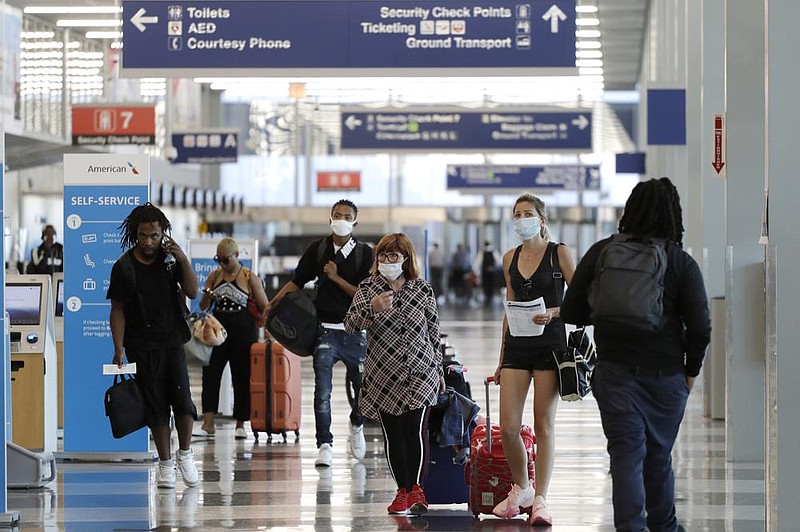American, Southwest and other airlines have begun meeting with Congressional and White House leaders to extend stimulus funds to help the slowly recovering industry cover payrolls for another six months.
Airlines, initially quiet about their requests for more government backing, are acknowledging to employees that they would like an extension of the previous payroll support program that prevented thousands of layoffs when the coronavirus pandemic started.
American Airlines Chief Executive Officer Doug Parker spent last week in Washington talking with lawmakers and executive branch leaders, according to an audio town hall shared with pilots. And Southwest Airlines CEO Gary Kelly told employees in an audio message Monday "we are actively engaged with members of Congress and the administration" on a new bill.
[CORONAVIRUS: Click here for our complete coverage » arkansasonline.com/coronavirus]
Both American and Southwest said during earnings announcements in late July that they support efforts by unions for expanded payroll grants, but have otherwise been publicly quiet.
Airlines are approaching the request more cautiously than they did in March for the first CARES Act, balancing the desire to avoid furloughs with the public toll of taking taxpayer money.
"It's always tough for companies to ask the government for money," said former U.S. Rep. Steve Bartlett, who is also a former mayor of Dallas and has also spent time as a financial industry lobbyist. "No one feels good about it. "
The coronavirus pandemic has been the biggest financial challenge in commercial aviation history. By now, airline executives had hoped the worst of the pandemic would be in the past and that airlines would be rebuilding schedules and passengers would be making last-minute summer plans before Labor Day.
But the recovery has stalled. The number of passengers traveling through airports decreased more than 70% in July compared with last year, according to the Transportation Security Administration. Instead of putting flights back on schedules, airlines are cutting back flights for this month and September.
American has signaled it will have to reduce its payroll by 20,000 employees in the fall. Southwest won't need furloughs this year after more than 28% of its workers agreed to time off or early retirement.
"Until we double our traffic, we won't break even," Kelly said in his message Monday, encouraging employees to continue to volunteer for leave.
Kelly told employees the carrier is in favor of a "lift and shift" of the previous government stimulus for airlines, which allocated $32 billion in grants and loans, but also prevented airlines from furloughing, laying off, or reducing employees' salaries or hours until Oct. 1. It also contained provisions that were more restrictive on shareholders and executives, such as limits on executive pay and dividends.
The newest proposal would give airlines until the end of March to get passenger levels back to financially sustainable levels.
Bartlett said it's a good idea to let employee groups such as unions lead the campaign because they are advocating directly for workers.
Union leaders such as Sara Nelson with the Association of Flight Attendants have been doing the public campaigning on cable news and social media, deflecting any notion that stimulus funding would be a bailout for airlines.
"An extension of the CARES Act, that's what we are really hoping will get us through this without involuntary furloughs," said Julie Hedrick, national president for the Association of Professional Flight Attendants, which represents about 25,000 workers at American Airlines. About 10,000 flight attendants risk being furloughed.
Southern Methodist University public relations professor Steve Lee said airlines won't be the visible cheerleaders for this bill, but won't hide their support either. Eventually, he said it will become public that the companies are lobbying for aid.
"Airlines are in a rock and a hard place kind of situation," Lee said. "They certainly didn't create it."
